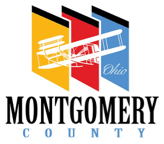Storm Water Management Program Homepage
“To protect human health and the environment.”
Montgomery County and its township co-permittees are committed to reducing and eliminating pollution directly at its source. These pollutants find their way to lakes, rivers, and streams by means of runoff from storm water.
The impact of this can be widespread, and in some cases poorly understood, affecting our local wildlife, agriculture, and even your drinking water.
Only with your help can we improve our community through active involvement, education, and a keen eye.
Brief Overview/History
In 1999, Phase II of the of the National Pollutant Discharge Elimination System (NPDES) permit, developed through the EPA, was approved and signed into law. This second phase required smaller communities, such as Montgomery County, to obtain permits in effort to reduce or eliminate pollutant sources from entering its public waterways as polluted stormwater runoff.
Polluted stormwater runoff is often transported through municipal separate storm sewer systems (MS4s) and ultimately discharged into local rivers and streams without treatment. These pollutants can include oil and grease from roadways, pesticides, sediment from construction sites, bacteria from failing septic systems, or carelessly discarded trash. When these are introduced to the storm sewer system and ultimately reach our local waterways, they can have a wide, lasting impact on our community and our personal well-being. A polluted waterway discourages recreational use, can impair or destroy the habitat of local wildlife, and contaminates a major source of the region’s drinking water.
In order to remain compliant with its permit, Montgomery County is responsible for creating, maintaining, and implementing a Storm Water Management Plan (SWMP). This document is intended to identify and describe the best management practices to meet six criteria required by the NPDES permit. These six requirements, known as minimum control measures (MCMs), give Montgomery County and other communities a framework for which to reduce or eliminate this pollution. These MCM’s are:
- MCM 1—Public Education and Outreach
- MCM 2—Public Participation and Involvement
- MCM 3—Illicit Discharge Detection and Elimination
- MCM 4—Construction Site Storm Water Runoff Control
- MCM 5—Post Construction Storm Water Management
- MCM 6—Pollution Prevention for Municipal Operation
Through implementation of the SWMP and the standards established by these MCMs, Montgomery County and its township co-permittees will continuously strive to make the Miami River Valley a beautiful and healthy place to live and work.
Storm Water Management Program
Montgomery County approved a revised Stormwater Management Plan on October 11, 2022. The Plan can be found HERE. Contact Sky Schelle, Stormwater Program Manager, with any questions. schelles@mcohio.org 937.225.4388
Co-Permittees
Montgomery County and its township co-permittees are committed to the health and well-being of the community.
Get Involved
Are you the type of person that hates sitting on the sidelines?
Are you the type of person who wants to have a positive impact on your community?
Does the thought of getting your hands dirty excite you?
If you answered yes to any of these questions, have we got news for you!
The Miami Conservancy District and the Five Rivers Metroparks, in partnership with Montgomery County, are seeking volunteers for numerous projects around our community.
Click the links below to find out how you can get involved:
Ways to Help From Home
Looking for ways to help from your own home? Check out these guides from Five Rivers Metroparks.
Illegal Dumping/Disposal Activity, Reporting Procedures
As residents of Montgomery County, we are all stakeholders and stewards of our community, each of us responsible for making an exciting, vibrant, and welcoming place to live. This can only happen when we hold accountable those that wish to tarnish this goal through illegal dumping and disposal activity down storm drains or other storm water conveyance.
Currently the County and the township co-permittees have not identified any of the following as significant contributors to pollution and will not address them:
- Water line flushing
- Landscape Irrigation
- Diverted stream flows
- Rising ground water
- Uncontaminated ground water infiltration
- Uncontaminated pumped ground water
- Discharges from potable water sources
- Foundation drains
- Air conditioning condensation
- Irrigation water
- Springs
- Water from crawl space pumps
- Footing drains
- Lawn watering
- Individual residential car washing
- Flows from riparian habitats and wetlands
- Dechlorinated swimming pool discharges
- Street wash water
- Discharges or flows from firefighting activities.
Residents are encouraged to contact Montgomery County if they witness any concerns not listed above. With your help we can keep Montgomery County’s water clean and fulfill our goal.
Call: (937) 225-4388
Don’t want to call but still want to make a difference? Fill out our Reporting Form and return by email or post.
Email: SWPPP@mcohio.org
Post:
Office of the Montgomery County Engineer
MS4 Program
451 W. Main Street, 8th Floor
Dayton, Ohio 45422
Development Community
Property Owner, Developers, Engineers, and Contractors planning earth disturbing activities, should reference the County Engineers Design Resources page for more detailed information.
Other Involved Government Agencies
Through Federal and State guidance this program is possible. Looking for more information on this program and how you can have an impact? Click the links below.


